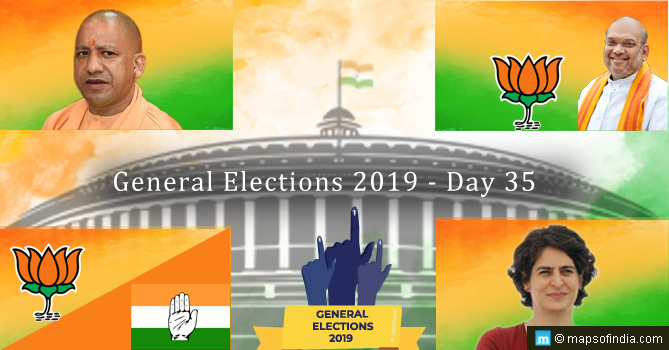What is FDI?
Foreign Direct Investment (FDI) is a mode of direct investment into production or business in a country by a company in another country, either by procuring a company in the target country or by expanding existing business operations in that country. Multi- brand retailers like Wal-Mart and Tesco aim to start operations in India through the FDI. Already single-brand companies like Nike, Bose and Apple have been allowed to open their own retail shops. It is certain that India’s retail business sector will undergo a severe change once all these players are in full form. However, the multi–retail brands will not be able to acquire an easy entry into the Indian market because the government has imposed a tighter set of norms that seeks to ensure that they build chains right from start. The policy ensures that the foreign investors to bring in at least a $100 million of investment split, equally between the front and back end. The implication of this policy is that, this amount has to be a new investment. In other words, a foreign multi-brand retailer will have to invest $ 50 million in setting up new stores to meet the front end requirement.
Some negative impacts of the FDI
Whereas the FDIs are a sure way of enriching the economy of the country, let us take a look at the flip side of the story. The debatable point is what will happen to the small retailers of the Indian market when these multi-brand giants like Wal-Mart and Tesco come into operation? Considering all possibilities, the announcement of FDI does not show a light of hope. The Indian retail market is diverse and very large in its composition. Only 4% of the retail trade in India is organized. FDI’s aim is the rest 96% of the unorganized retail sector which is not a homogeneous category, consisting of peddlers, street vendors, kiosks, pushcart vendors, and weekly traders. The majority of those involved in retailing depend on small and medium enterprises for their supplies. Since the multi-brand stores have the liberty to buy products from anywhere in the world and they have enough resources to conduct market research, they would explore the world market and invest wherever they would be able to maximize their profit through the final sale.
Small vendors and traders would continue to have access to the products produced by the small-scale industries, but at the same time these enterprises would face severe competition from cheap commodities imported from elsewhere. It is a simple speculation that sooner or later the prices of the commodities of these domestic small enterprises will fall in the markets and they will be forced to quit. It is argued that FDI in retail would create employment opportunities. But it would create employment for those who are educated and have professional experience. But those engaged in business in the unorganized retail sector have minimal education, no professional degree apart from their marketing knowledge. Now, if FDI in multi-brand retail comes, it is not in any way going to benefit these traders if they lose their sole means of survival.
Farmers also are not going to be benefited in any way as they would continue to be exploited by the multi-brand retail giants in the long run. Such destruction of the small scale and self employed lower middle class will lead to large scale poverty and destitution, because the unorganized retail sector is actually absorbing the shocks of migration and rural distress.
Some FDI proposals in India:
There had been numerous FDI proposals in India in the past few years. Discussed below are some of the recent FDI proposals that have been approved by the Government or is in the process of approval.
- As of 27th September, 2013 the Government had ratified 15 FDI proposals amounting to Rs 2000.5 crores. While the FDI proposals of US pharmaceutical giant Mylan and another one is awaiting the final approval of the Cabinet, the proposals of the companies that had been cleared include Jubilant Pharma Pte (Singapore) – Rs 1145.10 crores, Lotus Surgical Specialities – Rs 150 crores, Symbiotec Pharmalab – Rs 306.19 crores and Advanced Enzyme Technologies – Rs 200 crores.
- As of 13th November, 2013, Swedish Clothing major Hennes & Mauritz AB (H&M) had the ratification of the Foreign Investment Promotion Board (FIPB) for the investitures amounting to Rs 720 crores for opening a chain of outlets across the country for trading in single brand retail in India. H&M, one of the world’s largest fashion designers happens to have 3000 stores in 53 renowned markets worldwide and is the second Swedish company to gain access to the Indian market in the single brand retail slot after the Swedish Furniture giant IKEA with its FDI proposal worth Rs 10, 500 crores. As of 2nd December, 2013, the Government had ratified FDI proposals of Bay Capital Investments (Mauritius), Viacom 18 Media Private Limited, Hawco Petrofer Mumbai, Jobair Hassan Choudhury and Ms. Tasneem Ahmed, Bangladesh and Green Destinations Holdings, Mauritius. While four FDI proposals had been postponed which included companies like GETCO Asia Pvt. Ltd. and PS Asia Holdings, Mauritius, while four FDI proposal s were discredited which included Astonfield Renewables Pvt. Ltd. and Veritus India Limited.
- As of 31st December, 2013, four FDI proposals had been ratified by the Government inclusive of Mahle Holding India and HBO India which is supposed to bring in an investment amount of Rs 502 crores to India.
- As of 13th January, 2014, the proposal of the communication giant Vodafone, worth Rs 10, 141 crores for buying out the stakes in India has been adverted to the Cabinet Committee on Economic Affairs (CCEA), chaired by the Prime Minister of India, Dr. Manmohan Singh. The Government has ratified five more FDI proposals amounting to an estimated Rs 1,133.41 crores. The ratified proposals including those of Tesco Overseas Investment and Sing Tel Global have been approved by the Government on the basis of the green light from FIPB, headed by the Economic Affairs Secretary, Arvind Mayaram . As per a statement issued on the behalf of the Ministry, “The proposal of (CGP India Investments) has been recommended for the consideration of the CCEA as the investment involved in the proposal is above Rs 1200 crores”. CGP India Investments, a Mauritius based auxiliary of the Vodafone International Holdings BV has put in a request with the FIPB ‘to increase foreign equity in Vodafone India Limited from 64.38% to 100% in the telecom sector’. Tesco Overseas Investment has plans for investments amounting to Rs 682. 43 crores (USD 110 million), through the acquisition of the 50% of the equity share capital of Trent (A Tata Group Company), and the implementation of a chain of retail outlets in India for multi – brand trade. Sing Tel Global has been granted permissions to increase its FDI from 74% to 100% in the telecommunications sector. Companies like Tikona Digital Networks have also received necessary approval from the FIPB to increase their FDI in India which is supposed to secure an FDI of Rs 248 crore. The FIPB has further ratified six more FDI proposals of an estimated worth of Rs 7,533 crores, which includes the Rs 6400 crore FDI proposal of the pharmaceutical giant Glaxo Smith Kline’s bid for an increased stake in its auxiliary unit in India.
- As of 14th January, 2014 Union Commerce and Industry Minister Anand Sharma had declared, “We have received and approved 63 proposals for single brand retail so far”. While refraining to disclose the investment amounts that the country will attract as a result of these approvals, Sharma had further added that, “Though I am not able to tell off – hand the quantum of FDI the 63 proposals bring in, it will be in billions of dollars”. Amongst the proposals that got clearance for investments in single brand retail is that of the Swedish Furniture major IKEA, who has already initiated operations in India amounting to USD one billion.
Conclusion:
The Government had lifted the strictures on FDI norms in the single brand retail sector with permissions for 100% FDI in this sector. So far since 2006, 60 to 70 FDI proposals in the said sector had been approved by the Government. This article merely touches upon some of the significant FDI proposals that have been ratified by the Government. There had been numerous such FDI proposals following the liberalization of the FDI mandates in 2006 and it is quite impossible to list them in an article of this dimension. While only some of the approved proposals have been mentioned, many such FDI proposals are still under the considerations of the CCEA and the FIPB. It also needs to be mentioned here that a number of FDI proposals were rejected parallel to the considerable approvals.
Read More:
FDI Norms for NRIs Relaxed – Foreign Investments Anticipated
100% FDI in Medical Device Manufacturing Allowed
Foreign Direct Investment (FDI): An Introspection
Union Budget 2014-15 Expectations
Black Money in India




